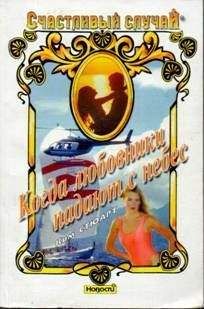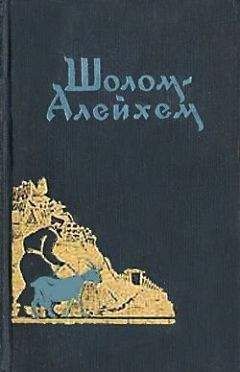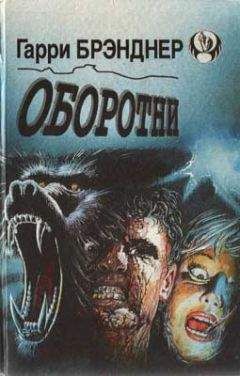Joe Haldeman - Forever Peace
"The cellmate was a scientist?"
"So he said. Murdered his wife and children in cold blood. Should be easy enough to check the news records, I guess around '22 or '23."
"Yeah. I can do that tonight." I went back to the serving table and poured a splash of rum into the coffee. It was too good a rum to waste that way, but desperate times call for desperate measures. I remember thinking that phrase. I didn't yet know quite how desperate the times were.
"Cheers." Mendez raised his cup as I sat back down. I tipped mine toward him.
A short woman with long flowing gray hair came over with a handset. "Dr. Class?" I nodded and took it. "It's a Dr. Harding."
"My mate," I explained to Mendez. "Just checking to make sure I got here."
Her face on the handset was the size of my thumbnail, but I could see she was clearly upset. "Julian-there's something going on."
"Something new?" I tried to make that sound like a joke, but could hear the shakiness in my voice.
"The Journal jury rejected the paper."
"Jesus. On what grounds?"
"The editor says they 'decline to discuss it' with anyone but Peter."
"So what does Peter – "
"He's not home!" A tiny hand fluttered up to knead her forehead. "He wasn't on the flight. The cottage in St. Thomas says he checked out last night. But somewhere between the cottage and the airport he ... I don't know..."
"Have you checked with the police on the island?"
"No ... no; that's the next step, of course. I'm panicking. I just wanted to, you know, hoped he had talked to you?"
"Do you want me to call them? You could – "
"No, I'll do it. And the airlines, too; double-check. I'll get back to you."
"Okay. Love you."
"Love you." She switched off.
Mendez had gone off to refresh his coffee. "What about this jury? Is she in trouble?"
"We both are. But it's an academic jury, the kind that decides whether a paper gets published."
"Sounds like you have a lot tied up in this paper. Both of you."
"Both of us and everybody else in the world." I picked up the red plug. "This is automatically oneway?"
"Right." He jacked in and then I did.
I wasn't as good at transmitting as he was, even though I was jacked ten days a month. It had been the same with Marty the day before: if you're used to two-way, you wait for feedback cues that never come. So with a lot of blind alleys and backtracking, it took about ten minutes to get everything across.
For some time he just looked at me, or maybe he was looking inward. "There is no question in your own mind. It's doom."
"That's right."
"Of course I have no way to evaluate your logic, this pseudo-operator theory. I take it that the technique itself is not universally accepted."
"True. But Peter got the same result independently."
He nodded slowly. "That's why Marty sounded so strange when he told me you were coming. He used some stilted language like 'vitally important.' He didn't want to say too much, but he wanted to warn me." He leaned forward. "So we're walking along Occam's razor now. The simplest explanation of these events is that you and Peter and Amelia were wrong. The world, the universe, is not going to end because of the Jupiter Project."
"True, but – "
"Let me carry this along for a moment. From your point of view, the simplest explanation is that somebody in a position of power wants your warning to be suppressed."
"That's right."
"Allow me the assumption that nobody on this jury would profit from the destruction of the universe. Then why, in God's name, would anyone who thought your argument had merit want to suppress it?"
"You were a Jesuit?"
"Franciscan. We run a close second in being pains in the ass."
"Well... I don't know any of the people on the review board, so I can only speculate about their motivations. Of course they don't want the universe to go belly-up. But they might well want to put a lid on it long enough to adjust their own careers-assuming all of them are involved in the Jupiter Project. If our conclusions are accepted, there are going to be a lot of scientists and engineers looking for work."
"Scientists would be that venal? I'm shocked."
"Sure. Or it could be a personal thing against Peter. He probably has more enemies than friends."
"Can you find out who was on the jury?"
"I couldn't; it was anonymous. Maybe Peter could wheedle it out of someone."
"And what do you make of his disappearance? Isn't it possible he saw some fatal flaw in the argument and decided to drop out of sight?" "Not impossible."
"You hope something bad happened to him." "Wow. It's almost as if you could read my mind." I sipped some coffee, now unpleasantly cool. "How much did I let slip there?"
He shrugged. "Not a lot."
"You'll know everything minutes after we jack two-way. I'm curious."
"You don't mask very well. But then you haven't had much practice."
"So what did you get?"
"Green-eyed monster. Sexual jealousy. One specific image, an embarrassing one."
"Embarrassing for you?"
He tilted his head to about ten degrees of irony. "Of course not. I was speaking conventionally." He laughed. "Sorry. I didn't mean to be patronizing. I don't suppose anything just physical would embarrass you, either."
"No. The other part is still hanging there, though. Unresolved."
"She's not jacked."
"No. She tried and it didn't take."
"Wasn't long ago?"
"Couple of months. May twentieth."
"And this, um, episode was after that?"
"Yeah. It's complicated."
He took the cue. "Let's go back to ground zero. What I got from you-assuming that you're right about the Jupiter Project-is that you and Marty, but Marty more than you, believe that we have to rid the world of war and aggression right now. Or the game is up."
"That's what Marty would say." I stood up. "Get some fresh coffee. You want something?"
"Splash of that rum. You're not as certain?"
"No ... yes and no." I concentrated on the drinks. "Let me read your mind, for a change. You think that there's no need for haste, once the Jupiter Project's deactivated."
"You think otherwise?"
"I don't know." I set the drinks down and Mendez touched his and nodded. "When I jacked with Marty I got a sense of urgency that was completely personal. He wants to see the thing well in process before he dies."
"He's not that old."
"No, sixty-some. But he's been obsessed with this since you guys were made; maybe before. And he knows it will take a while to get going." I searched for words; logician's words. "Marty's feelings aside, there's an objective rationale for urgency; the black-and-white one of scale: anything else we do or don't do is trivial if there's the slightest chance that this could come to pass."
He sniffed the rum. "The destruction of everything."
"That's right."
"Maybe you're too close to it, though," he said. "I mean, you're talking about a huge project here. It's not something that a Hitler or a Borgia could cook up in his backyard."
"In their own times, no. Now they could," I said. "You of all people should see how."
"Me of all people?"
"You've got a nanoforge in your basement. When you want it to make something, what do you do?"
"Ask it. We tell it what we want and it goes into its catalogue and tells us what raw materials we have to come up with."
"You can't ask it to make a duplicate of itself, though."
"They say no, it would melt down if you did. I'm not inclined to try."
"But that's just part of the programming, right? In theory, you could short-circuit it."
"Ah." He nodded slowly. "I see where you're heading."
"That's right. If you could get around that injunction, you could say, in effect, 'Re-create the Jupiter Project for me,' and if it had access to the raw materials, and the information, it could do it."
"As an extension of one person's will."
"That's right."
"My God." He drank the rum and set the glass down hard. "My God."
"Everything," I said. "A trillion galaxies disappear if one maniac says the right sequence of words."
"Marty has a lot of faith in the monsters he created," Mendez said, "to let us share this knowledge."
"Faith or desperation. Guess I got a mixture of both from him."
"You hungry?"
"What?"
"You want dinner now, or should we all jack first?"
"That's what I'm hungry for. Let's do it."
He stood up and brought his hands together in two explosive claps. "Big room," he shouted. "Marc, you stay out and keep watch." We followed everyone to a double door on the other side of the atrium. I wondered what I was getting myself into.
JULIAN WAS USED TO being ten people at once, but it was stressful and confusing at times, even with people you had grown close to. He didn't really know what to expect, linking with fifteen men and women he'd never met, who had been jacked together for twenty years. That would be alien territory even without Marty's pacifistic transformation. Julian had used his horizontal liaison to weakly link with other platoons, and it was always like breaking in on a family discussion.
Eight of these had been mechanics, at least, or pro-tomechanics. He was more nervous about the others, the assassins and murderers. More curious about them, too.
Maybe they could teach him something about living with memories.
The "big room" held a ring-shaped table surrounding a holo pit. "Most of us get together here for the news," Mendez said. "Movies, concerts, plays. Fun to have all the different points of view."
Julian wasn't sure about that. He'd mediated too many firestorms in his platoon, where one person came up with a strong opinion that divided the ten into two bickering camps. It took about a second to start, and sometimes an hour to sort out.
The walls were dark mahogany and the table and its chairs were fine-grained spruce. A slight whisper of linseed oil and furniture polish. In the pit, an image of a forest clearing, dappled sunlight on wildflowers.
There were twenty seats. Mendez offered Julian a chair and sat down next to him. "You might want to plug in first," he said, "let people come in one at a time and introduce themselves."
"Sure." Julian realized this had all been rehearsed. He stared at the wildflowers and plugged himself in.
Mendez was the first one, waving a silent hello. The link was strange, powerful in a way he'd never come close to experiencing. It was startling, like seeing the sea for the first time-and it was like a sea in a literal way; Mendez's consciousness floated in a seemingly endless expanse of shared memory and thought. And he was comfortable with it the way a fish is comfortable with the sea, moving through its invisibility.
Julian tried to communicate his reaction to Mendez, along with a sense of rising panic; he wasn't sure whether he could manage two such universes, let alone fifteen. Mendez said it actually gets easier with more, and then Cameron plugged in to prove it.
Cameron was an older man, who had been a professional soldier for eleven years when he volunteered for the project. He had gone to a sniper school in Georgia, and trained for long-distance murder with a variety of weapons. Mostly he had used the Mauser Fernschiesser, which could target people around a corner or even over the horizon. He had fifty-two kills, and separate grief for each of them, and a single large pang for the humanity he had lost with the first shot. He also remembered the exhilaration the kills had given him, at the time. He had fought in Colombia and Guatemala, and automatically made a connection with Julian's jungle days, absorbing and integrating them almost instantly.




